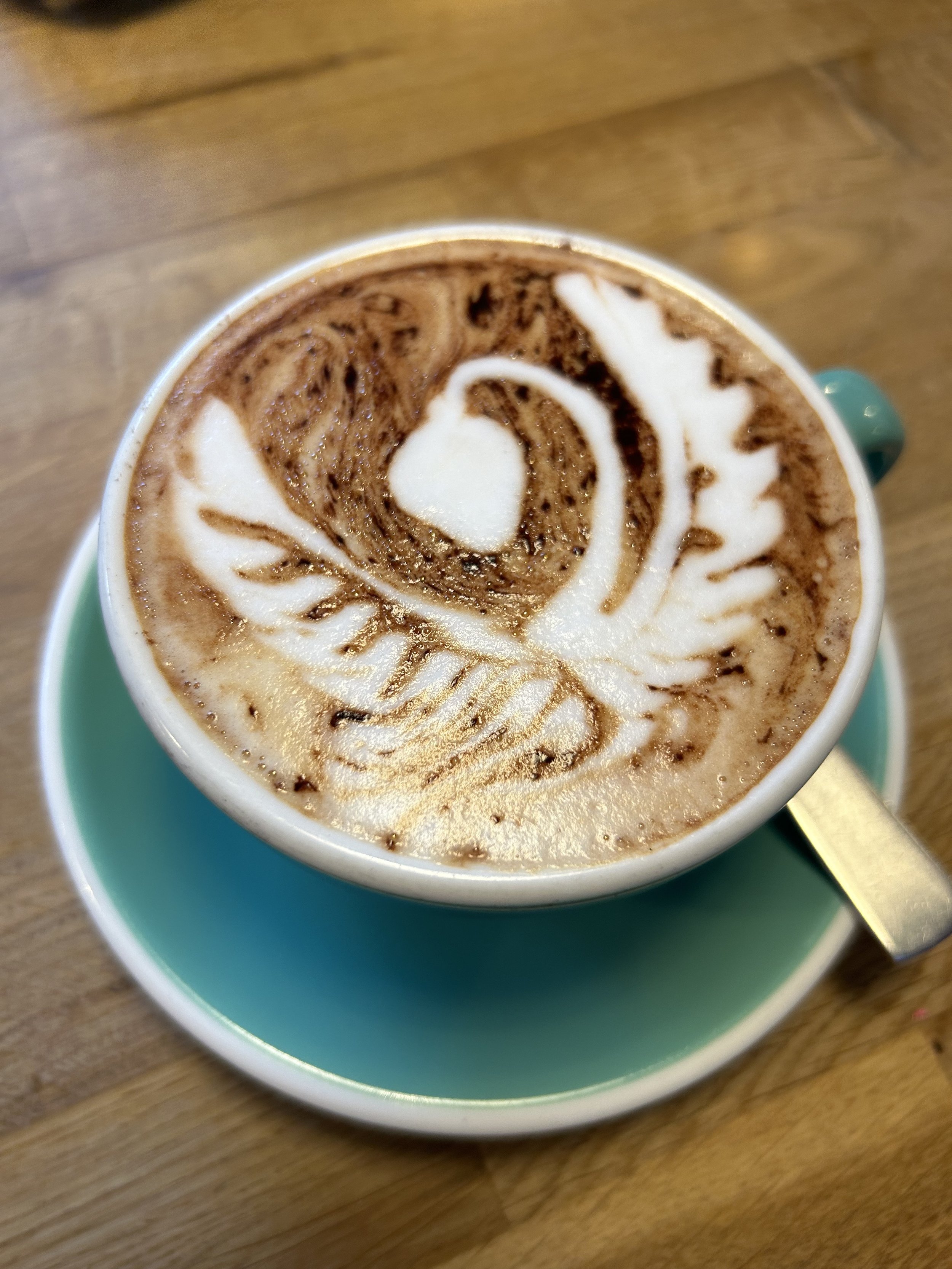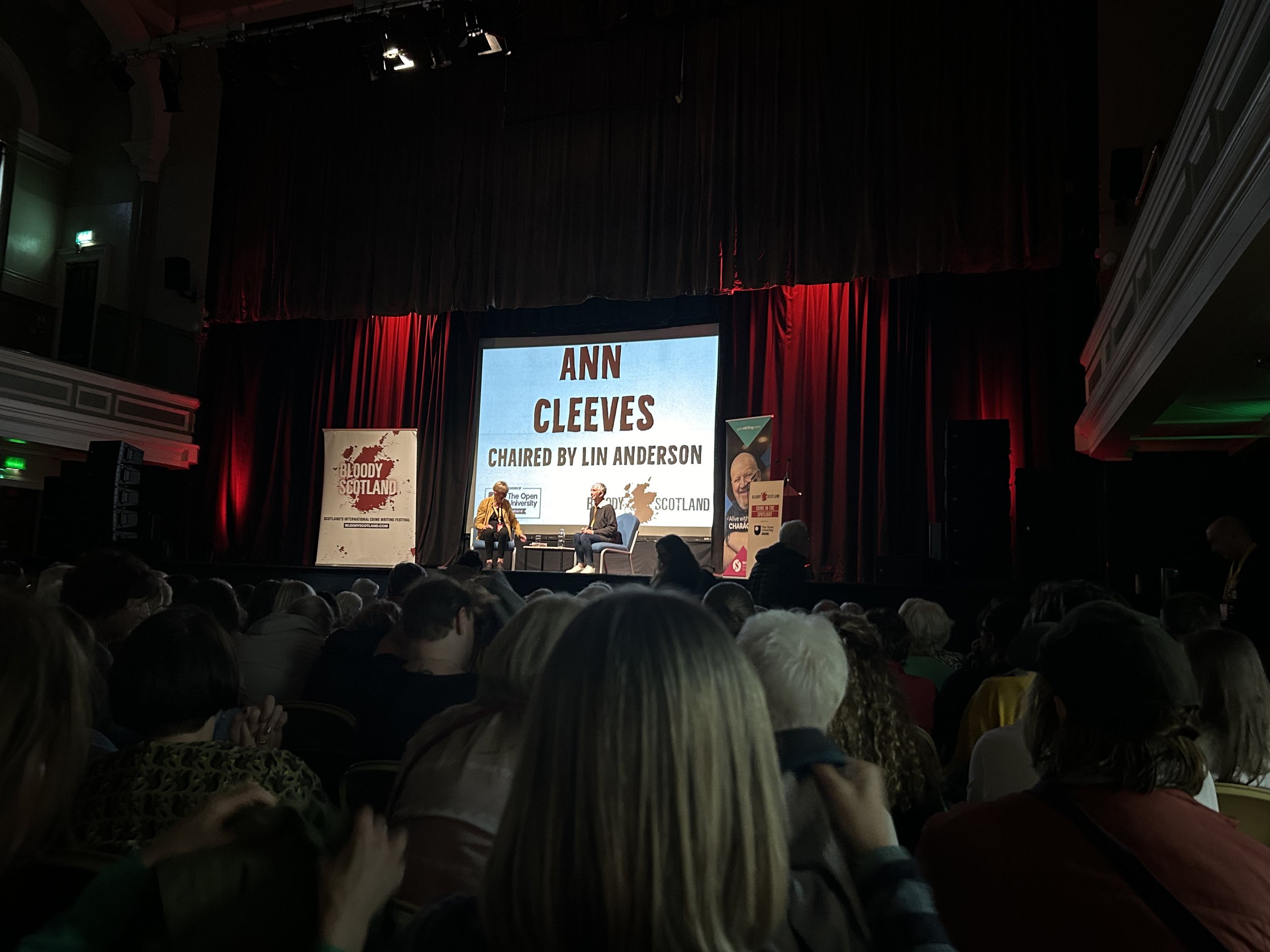The Bloody Scotland Book Festival - Day 2
It was good to have a slow start on Saturday morning, as I was still processing the events from the day before. We went for coffee and breakfast at a cute cafe in the centre of Stirling. It was lovely to sit in the window and look out at the passersby and discuss the festival so far. After brunch, we strolled through the streets of Stirling on our way to the Albert Halls.
Saturday 1 pm - Frank Gardner
The first event of the day was a discussion with Frank Gardner the journalist and war correspondent, who has written a new book. When we arrived at the venue there was a huge line stretching up the street towards the castle. As we joined the line we saw Frank Gardner himself passing by on his way to the event.
Once inside, every seat was taken, and there was a buzz of excitement waiting for Frank to come onto the stage. When Frank joined us, he was engaging to listen to and extremely knowledgeable about politics. I found the event to be more focussed on Frank’s knowledge of politics rather than his writing, and he was very much treated like a celebrity, with the audience excited to meet him and to ask questions! I think my main takeaway from the event was that as a writer it’s helpful to write about topics and places you know lots about, such as Frank using his knowledge of foreign correspondence and conflict to inspire and inform his creative writing.
After the event finished, there was a few hours break before the next one, so I decided to go for a walk up to the castle to see the views across Stirling.
Saturday 4 pm - Ann Cleaves
The next event was with Ann Cleaves and I was really excited to hear her talk about her new book, which is the next book in her Vera Stanhope series (she is the author behind the television series Vera and Shetland). Ann came across very genuine and you could hear her passion for the characters she has created through her writing. It was lovely to listen to her speaking so passionately about her joy for writing.
The main thing I took away from Ann was the importance of creating a character who you love and enjoy spending time with (in your own imagination), and how the character can become a person who you get to know. She talked about how the character Vera naturally arose in her imagination, and how she has developed and got to know Vera through her writing, which has led to Vera becoming a favourite character for many people who watch the television series.
I think Ann shared the experience of becoming a writer really well, as she is just a normal person (a social worker), who had the urge to write and who started writing about characters who she had created in her imagination. These characters have come to life through her books and the television series based on the books. She shared that her favourite time to write is early in the mornings in her kitchen when everyone else, including her grandchildren, are still asleep!
Saturday 8.30 pm - Irvine Welsh and Louise Welsh
The final event of the weekend was a discussion with Irvine Welsh and Louise Welsh. I had chosen this event because I recognised Irvine Welsh as the author who wrote Train Spotting, so I was intrigued to hear him talk about his experience as a writer.
It turned out that Irvine and Louise are cousins who grew up in Edinburgh together and who have both written books and had careers as authors. They were both very different personalities and have different approaches to writing. Irvine had strong opinions and a bold approach to writing, where he explained that each time a story arises in him, he puts pen to paper and gets the story out. Once, he’s got the story down in words, he’ll pass it onto a publisher to send out to the world. He described it as releasing the story to get it out of your system, a bit like expelling emotions, thoughts, and feelings. It sounded quite cathartic!
Louise was very different in her approach, as she is an academic who lectures in creative writing at the University of Glasgow. Hence, she has studied the art of writing and is familiar with writing techniques. Therefore, her approach to writing is more structured and she also views writing through the lens of a teacher and mentor to her students.
Both Irvine and Louise came across as passionate about storytelling and discussed how their social and cultural surroundings have inspired the stories they want to tell. It was interesting to hear their discussion and to think about how my own experiences have influenced the stories I may want to tell!
Reflections
Having attended my first writing festival, I now feel more connected to the world of writing and have first-hand experience of meeting a range of authors and people working in the industry. It was definitely worth going to the festival and listening to the different talks, which showcased the experiences and perspectives of the authors. I have learnt a lot and feel that I am developing a foundational understanding of what it means to be a writer.
My main takeaways from the festival are:
The art of storytelling is at the core of good writing (having an engaging plot is important!).
Creating characters who you love and enjoy spending time with (in your imagination) is key to writing stories.
Writing can be a lonely and challenging process, so it’s important to make friends and to lean on others for support during this journey.
Overall it has been an excellent experience and I would recommend attending a writing festival to anyone who is interested in exploring their passion or desire to write and tell stories!




